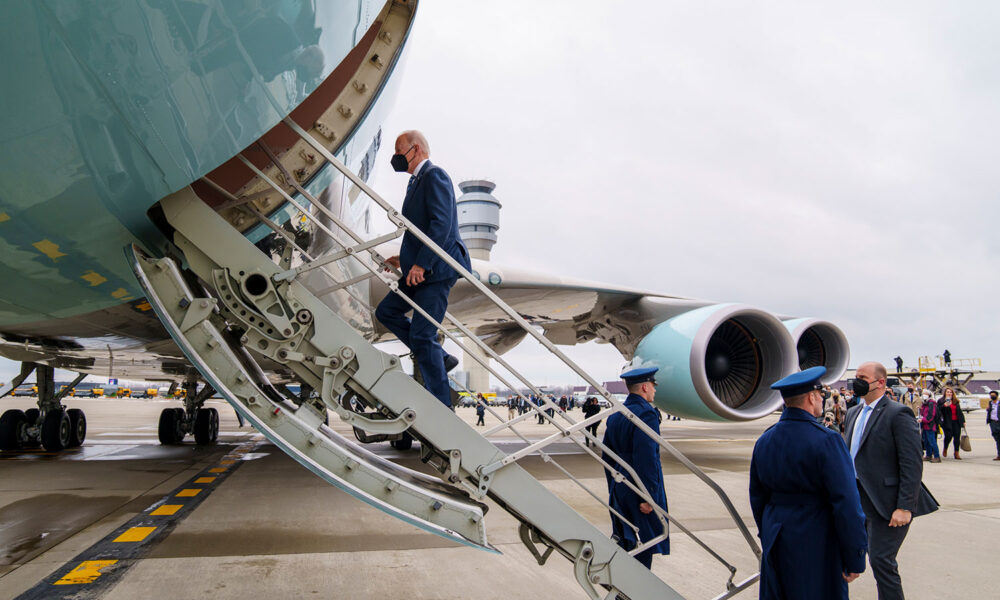President Biden should use his visit to South Korea and Japan to make it clear that the only role for US nuclear weapons in East Asia is to retaliate if US forces or the allies who host them are attacked with nuclear weapons. That assurance of US retaliation is the umbrella that protects South Korea and Japan from a nuclear attack.
Clarity is urgently needed to forestall rash decisions from perpetually nervous, nuclear-armed North Korean leaders who believe the United States will jump at any opportunity to eliminate them. It is also needed to dispel the dangerous misconceptions of US and Japanese defense officials who believe threats to use US nuclear weapons first will prevent a Chinese conventional attack.
There are three reasons the United States, Japan, and South Korea should set aside plans to expand the role of US nuclear weapons in the region.
North Korea is a nuclear weapons state
The United States, Japan, and South Korea should stop imagining there are steps they can take to persuade North Korean leaders to surrender their nuclear weapons. Kim and company know they cannot compete in a conventional arms race with South Korea or Japan, much less with the United States.
North Korean leaders don’t trust their comrades in China or Russia and believe nuclear weapons are their only assurance of survival. They don’t keep testing their increasingly capable arsenal of ballistic missiles just to send signals or attract attention. They want to make sure they work, and to demonstrate they can use them before any imaginable allied attempt at preemption.
A frank US admission that preemption is not an option and that de-nuclearization is a long-term goal can be the basis for a dialogue with North Korea on preventing a war, which should be the top priority of US, Japanese and South Korean policy towards North Korea. The three allies do not need China or Russia to begin that dialogue, which should start as soon as possible.
US nuclear threats won’t deter Chinese conventional aggression
China’s communist leaders believe that if they have a demonstrable ability to retaliate the United States will not use nuclear weapons first. Because they believe that, relying on threats of nuclear first use to deter Chinese leaders from initiating conventional hostilities will not work. Pretending that it will undercuts the urgency to take more effective measures, including diplomacy, to prevent war, which should be the top priority of US, Japanese and South Korean policy towards China.
The Chinese leadership’s decision to build new nuclear missile silos in its far western regions is most likely intended to convince the United States and its allies that China’s ability to retaliate is beyond question. Chinese nuclear strategists probably felt this was necessary because the United States—in part to satisfy Japanese defense officials—still refuses to admit the United States is vulnerable to Chinese nuclear retaliation.
These Japanese officials are opposed to recognizing US vulnerability to Chinese retaliation because they believe US leaders might be unwilling to retaliate if China attacked Japan with nuclear weapons. They want to address this lack of faith in the United States with a new “nuclear sharing” arrangement that would place US nuclear weapons under Japanese control. President Biden should join Prime Minister Kishida in emphatically rejecting all Japanese talk of “sharing” US nuclear weapons with Japan.
Projecting confidence works better than demonstrating resolve
The war in Ukraine has made people in South Korea and Japan concerned their lives could suddenly be upended by war. Many worry the United States is no longer willing or able to keep the peace.
Redeploying US tactical nuclear weapons in East Asia and threatening to use them first to demonstrate US resolve will only make matters worse. It is a sign to the people of South Korea and Japan that the United States government has given up on diplomacy and no longer believes its conventional forces are sufficient to deter or defeat Chinese conventional aggression.
It will also increase the North Korean leadership’s suspicions of US intent, their preparations for nuclear war and the risk they’ll feel compelled to strike first in a crisis.
Trust cannot be purchased with nuclear weapons. They’re no guarantee of security either. The best way for President Biden to calm the fears of people in South Korea and Japan, while reassuring and supporting their leaders, is to say plainly that the United States is prepared to defend them, no matter the cost, and that it does not need to threaten to start a nuclear war to do that.
At the same time, the president should show the United States is preparing new diplomatic initiatives to talk with North Korea and China about preventing war. Instilling hope and confidence in the future, rather than stirring up more fear, is the best way to rebuild South Korean and Japanese trust in the United States.

